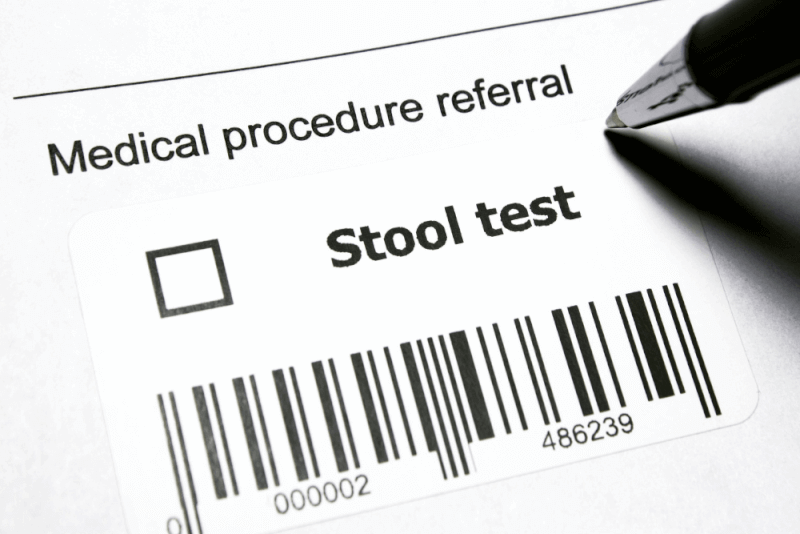What is Zollinger-Ellison syndrome?
Zollinger- Ellison syndrome is a rare condition in which one or more tumors grow in the upper part of the pancreas or small intestine. He calls the tumors gastronomy. These tumors produce large amounts of the hormone gastrin. Gastrin causes the stomach to produce too much acid, which leads to peptic ulcers. High levels of secreted gastrin can also cause abdominal pain, diarrhea and other symptoms.
Zollinger- Ellison syndrome can occur at any time of life, but it particularly affects people between the ages of 20 and 60. Medicines to reduce stomach acid and heal ulcers are the usual treatment for Zollinger- Ellison syndrome, but some people may need surgery to remove tumors.
Diagnostic criteria for Zollinger-Ellison syndrome
Physicians review the patient's symptoms and medical history before making a diagnosis. In addition, the tests to be performed to diagnose the disease include the following.
Blood tests
It is the examination of a blood sample to see if the gastrin level is high. High gastrin levels suggest tumors in the pancreas or duodenum, but high gastrin levels can also be caused by other conditions. Reasons for high gastrin levels include factors such as the stomach not producing acid or having stomach surgery. In addition, taking acid-reducing drugs also causes gastrin levels to be high.
Patients should fast for a certain period of time before the blood tests that are performed to measure gastrin levels. Acid-reducing medicines should also not be taken during this period. The test may be repeated several times as gastrin levels change.
A secretin stimulation test can be performed in addition to this test. Secretin is a hormone that determines the level of stomach acid. The gastrin level must be measured before this test is performed. Secretin is then injected and the gastrin level is measured again. Gastrin levels are significantly increased in the presence of Zollinger- Ellison syndrome.
Upper gastrointestinal endoscopy
The patient is sedated before this test is performed. Endoscopy involves inserting a thin flexible instrument down the throat into the stomach and duodenum. This tool, which has a light and a camera at the tip, makes it possible to look for ulcers. Tissue samples can be taken during endoscopy. Tissue samples are examined for gastrin-producing tumors. During endoscopy, it can also be determined whether the stomach produces acid. If the stomach is acidic and gastrin levels are high, Zollinger- Ellison syndrome can be diagnosed.
Endoscopic ultrasound
This procedure uses an endoscope with an ultrasound probe attached. Prop facilitates the detection of tumors in the pancreas, stomach and duodenum.
Imaging tests
It uses imaging tests to enable tumors to be visualized. These tests include nuclear scans called somatostatin receptor scintigraphy. These tests make it possible to locate tumors. Radioactive tracers are used for this. Other imaging tests used include ultrasound, computed tomography, magnetic resonance imaging and Ga- DOTATATE PET CT scan.
Symptoms of Zollinger-Ellison syndrome
Symptoms of the syndrome include the following.
- Abdominal pain
- Loss of appetite
- Diarrhea
- Involuntary weight loss
- Burning pain or discomfort in the upper abdomen
- Bleeding in the digestive tract
- Acid reflux and heartburn
- Nausea
- Vomiting
- Burping
Causes of Zollinger-Ellison syndrome
The exact cause of Zollinger- Ellison syndrome is unknown, but the pattern of events is typically seen in the same sequence. Typical stages in the development of Zollinger- Ellison syndrome include the following.
- One or more tumors in the pancreas or in the part of the small intestine called the duodenum
- Tumors secrete large amounts of the hormone gastrin
- The stomach produces too much acid
- Ulcers and diarrhea
Tumors in Zollinger- Ellison syndrome usually have cancerous cells. Although tumors tend to grow slowly, cancer can spread elsewhere, most commonly to the nearest lymph nodes and liver.
In addition, having an inherited condition called multiple endocrine neoplasia type 1 (MEN1) can also cause Zollinger- Ellison syndrome. For this reason, 25% of patients with Zollinger- Ellison syndrome have MEN1.
Zollinger-Ellison syndrome treatment methods
Treatment of Zollinger- Ellison syndrome focuses on treating hormone-secreting tumors as well as the ulcers they cause.
Tumor treatment
An expert surgeon is required to remove tumors that cause Zollinger- Ellison syndrome. This is because these tumors are usually small and difficult to find. In patients with only one tumor, the tumor can be surgically removed. However, surgery may not be an option in the case of multiple tumors or tumors that have spread to the liver.
In addition, in people with multiple tumors, removal of a single large tumor may be recommended. In some cases, doctors recommend other treatments to control tumor growth, including
- Removal of as much of the liver tumor as possible (this procedure is called mass reduction)
- Trying to destroy the tumor by cutting the blood flow called embolization
- Using heat to destroy cancer cells in a procedure called radiofrequency ablation
- Injecting drugs into the tumor to relieve cancer symptoms
- Using chemotherapy to slow the growth of the tumor
- Performing a liver transplant
Treatment of hyperacidity
Excessive acid production can be controlled in almost all cases. Drugs known as proton pump inhibitors are the first line of treatment. These medicines make it possible to control the acid production caused by Zollinger-Ellison syndrome.
Proton pump inhibitors are powerful acid reducing drugs. The principle of operation of these drugs is to block the action of the pumps in the acid-secreting cells and neutralize them. However, long-term use of proton pump inhibitors increases the risk of hip, wrist and spine fractures. Especially people over the age of 50 are at greater risk. However, this risk is small and should be weighed against the acid-blocking benefits.
In addition to proton pump inhibitors, octreotide, a drug similar to the hormone somatostatin, is one of the options for eliminating the effects of gastritis. However, these types of medicines are not effective in all patients.








